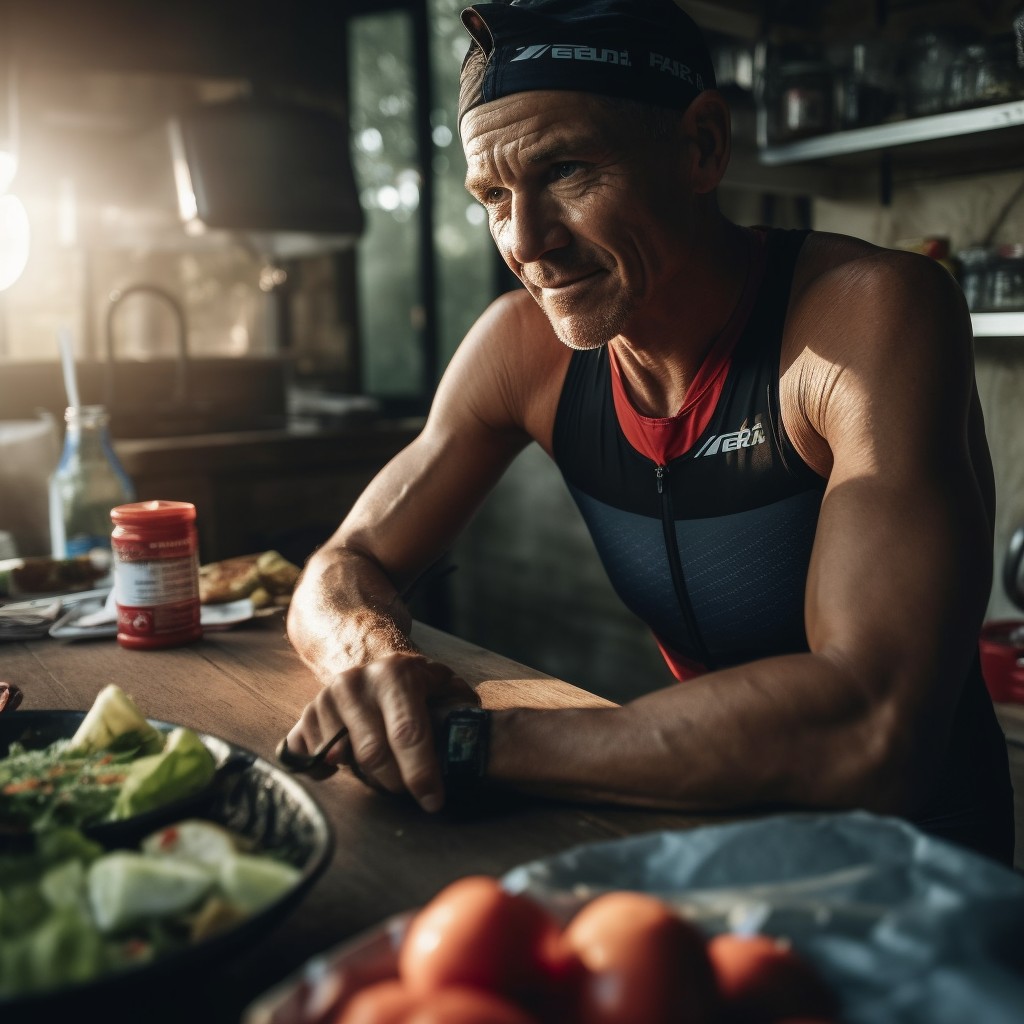Ultra triathlons are the ultimate test of endurance, pushing athletes to their physical and mental limits. These grueling events consist of a 2.4-mile swim, a 112-mile bike ride, and a full marathon of 26.2 miles. Completing an ultra triathlon requires months of intense training, mental toughness, and proper nutrition and hydration.
Nutrition and hydration are critical components of any endurance event, and ultra triathlons are no exception. Proper fueling can mean the difference between finishing strong and hitting the wall. Ultra triathletes need to consume enough calories to sustain their energy levels throughout the race, while also staying hydrated to prevent dehydration and heat exhaustion.
The first step in proper nutrition for ultra triathletes is to establish a solid pre-race meal plan. The meal should consist of easily digestible carbohydrates, such as pasta, rice, or bread, and a moderate amount of protein. It’s important to avoid high-fat foods, as they can slow down digestion and cause gastrointestinal distress during the race.
During the race, athletes need to consume a steady stream of calories to maintain their energy levels. The general rule of thumb is to consume between 200-300 calories per hour, depending on the athlete’s size and exertion level. This can come in the form of energy gels, bars, or sports drinks. It’s important to experiment with different types of fuel during training to find what works best for each individual athlete.
Hydration is equally important during an ultra triathlon. Athletes need to consume enough fluids to replace the sweat lost during the race. The general guideline is to drink between 20-30 ounces of fluid per hour, depending on the athlete’s size and exertion level. Sports drinks can be a good option, as they contain electrolytes that help replace the sodium and potassium lost through sweat.
It’s important to note that overhydration can be just as dangerous as dehydration. Drinking too much water can lead to hyponatremia, a condition where the sodium levels in the blood become dangerously low. Symptoms of hyponatremia include nausea, vomiting, confusion, and seizures. Athletes should monitor their fluid intake and adjust accordingly based on their body’s needs.
In addition to proper nutrition and hydration, ultra triathletes need to pay attention to their electrolyte levels. Electrolytes are minerals that help regulate the body’s fluid balance, muscle function, and nerve impulses. During an ultra triathlon, athletes lose electrolytes through sweat and need to replace them to prevent cramping and fatigue.
Sports drinks are a good source of electrolytes, but athletes can also consume electrolyte tablets or powders. It’s important to read the labels and choose products that contain a balanced mix of sodium, potassium, magnesium, and calcium.
In conclusion, proper nutrition and hydration are critical components of any endurance event, and ultra triathlons are no exception. Athletes need to establish a solid pre-race meal plan, consume a steady stream of calories during the race, and stay hydrated to prevent dehydration and heat exhaustion. It’s important to experiment with different types of fuel and monitor fluid and electrolyte levels to find what works best for each individual athlete. With the right nutrition and hydration plan, ultra triathletes can conquer the ultimate test of endurance and achieve their goals.


Leave a Reply